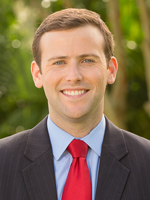
Parents would have more ability to choose among public schools for their children, charter schools would face more scrutiny before opening, and some principals at traditional schools could enjoy more charter-like freedoms under a combined school choice package set for a final vote Friday in the Florida House.
The charter changes and principal autonomy programs had already passed the House, but were added to HB 1145 today to bring it closer to the Senate’s public school choice legislation.
The revised House legislation does not include a contentious plan to help fund charter school facilities with local property tax revenues. A range of funding issues are in flux because of a healthcare standoff that has deadlocked budget negotiations.
The revised House school choice legislation would also require school districts to give each parent a detailed breakdown of spending on their child’s programs, create a new Institute for Charter School Innovation at Florida State University, and offer new incentives for public schools to require uniforms.
The bill would also require the state Board of Education to create rules governing adjunct teaching certificates, and allow charter schools to issue them — a power currently reserved for school districts.
Bill sponsor Chris Sprowls, R-Palm Harbor, said the bill would likely strengthen oversight of adjunct teachers, which state law already allows.
Adjunct certificates are intended to allow people with knowledge in their field (consider a retired NASA engineer who wants to teach a science class, or a working welder who wants to teach in a technical education program) to teach courses in public schools without obtaining full-blown teaching certificates. The goal is to help schools diversify their course offerings.
Sprowls said lawmakers want to create an avenue for professionals in other fields to “get their feet wet” in classrooms. Unlike traditional certificates, adjunct certificates have to be renewed every year, and can only be renewed for teachers rated “effective” or “highly effective” in their annual evaluations.


